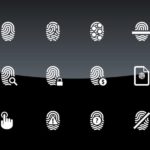Welcome to FindBiometrics’ digest of identity industry news. Here’s what you need to know about the world of digital identity and biometrics today:

Judge Dismisses Estée Lauder’s ‘Virtual Try-On’ BIPA Lawsuit
U.S. District Judge Lindsay Jenkins in Chicago has dismissed a proposed class action lawsuit against Estée Lauder and several of its cosmetics brands that alleged violations of Illinois’ Biometric Information Privacy Act (BIPA). The lawsuit revolved around a ‘virtual try-on’ tool that used face biometrics to display how certain products would look on end users’ faces. While BIPA broadly requires companies to obtain written consent and provide certain disclosures in their collection and use of biometric data, Judge Jenkins ruled that plaintiffs must show that Estée Lauder could connect the face scans to their identities. The judge invited the claimants to file an amended complaint if they wish.
Soccer Unions Welcome Biometric Security Amid Safety Fears
Ninety-eight percent of soccer unions would welcome the increased use of facial recognition as a safety measure against hooliganism, according to a new report from FIFPRO (“Fédération Internationale des Associations de Footballeurs Professionnels”), a global trade union for professional soccer players. The report, “The Impact of Violence Towards Footballers in Their Workplace”, includes findings based on player interviews, a survey of 41 national unions, and an academic research paper, and generally tracks growing concern about safety in the sport with respect to physical and verbal abuse.
‘China ID’ Certification Delivers Market Breakthrough for NEXT
NEXT Biometrics says that its FAP20 fingerprint sensor has now achieved “China ID” certification through a domestic partner, characterizing the certification as being similar to a certification program in India that is related to the latter country’s massive Aadhaar national ID program. NEXT says this China ID certification will open the door to more business in China’s government and banking sectors, with Chief Product Officer Marcus Laurén calling it “a key milestone in our entry into biometric market in China.” Laurén was one of a trio of new executives named to NEXT’s management team in November as the company seeks to scale up its commercialization efforts.
More Biometric Tech at CES 2024
At this year’s Consumer Electronics Show, currently underway in Las Vegas, NEC has unveiled a smartphone-based biometric system that can take several measures of vital signs via face biometrics. The system scans both facial features and pupil movements to detect the end user’s pulse, blood oxygen levels, and respiratory rate, and can do so in less than a minute. NEC plans to add other metrics to the system’s capabilities including stress and mental focus, and the company says it will commercially launch the system later this year.
Taiwan’s HCMF Group, an automotive components maker, has unveiled new biometric tech at CES 2024, including a Child Presence Detection system developed in collaboration with TMY Technology that can detect heartbeats and respiration of kids in the car, and automatically checks if any kids were left inside when the driver locks the door. HCMF Group and TMY Technology also developed a facial recognition system for car unlocking that is connected to a hidden external door handle. The innovations maintain an automotive biometrics trend that has become prominent at CES.
Visual Aid System Features Facial Recognition, Language Processing
Israel-based OrCam Technologies, a specialist in assistive devices for the visually impaired, has launched a new AI system for its Orcam MyEye product, a lightweight device that can be attached to eyeglasses. In addition to reading text and identifying products, the system supports facial recognition. It can also respond to voice-based inquiries, and it has internet connectivity. OrCam was founded by Amnon Shashua and Ziv Aviram, the same pair behind the autonomous driving company Mobileye.
BIO-key Brings Biometric IAM to Fargo, Junction City Governments
The municipal governments of Fargo, North Dakota and Junction City, Kansas have decided to implement biometric authentication for their Identity and Access Management systems, and are doing so via BIO-key’s PortalGuard solution, the company has announced. “The growing adoption of biometric authentication by U.S. municipalities reflects a continuing shift towards a more efficient, cost-effective, and user-friendly approach to securely authenticating to municipal digital services,” said BIO-key’s PortalGuard President, Mark Cochran. News of the deployments arrives after multiple announcements of deals concerning BIO-key’s AuthControl Sentry, which offers an authentication system based primarily on one-time passcodes.
FPC Tech Secures Laptop Lock
Fingerprint Cards’ FPC SafeTouch technology is being used in a new security device from TechLok solutions designed to stop laptop theft. Unveiled at CES 2024, the LapLok is essentially a clamp system that attaches a laptop to a desk or table, and can only be unlocked with a fingerprint scan. BenjiLock is also involved in the collaboration, offering its FPC technology to TechLok, one of its first licensees. “As we embark on our strategic partnership with Fingerprints, the collaboration enables our licensees to quickly prototype and release biometric enabled products to market in a more timely fashion,” explained BenjiLock CEO Robbie Cabral.
TECH5 Provides Liveness Tech for French Platform
TECH5 has delivered liveness detection technology to Namirial SAS, the company has announced. Namirial offers a digital trust services platform that includes a remote identity verification system developed by Netheos, a French firm acquired by Namirial in 2021. With France’s National Cyber Security Agency (ANSSI) now actively evaluating and certifying the quality of remote identity verification services, Namirial SAS needed a liveness solution for its face-based onboarding system. The company’s CTO and Deputy Managing Director, David Emo, credited TECH for “very straightforward” initial discussions and ultimately providing “all the support we needed,” along with its iBeta Level 2 certified solution.
–
January 11, 2024 – by Alex Perala






Follow Us